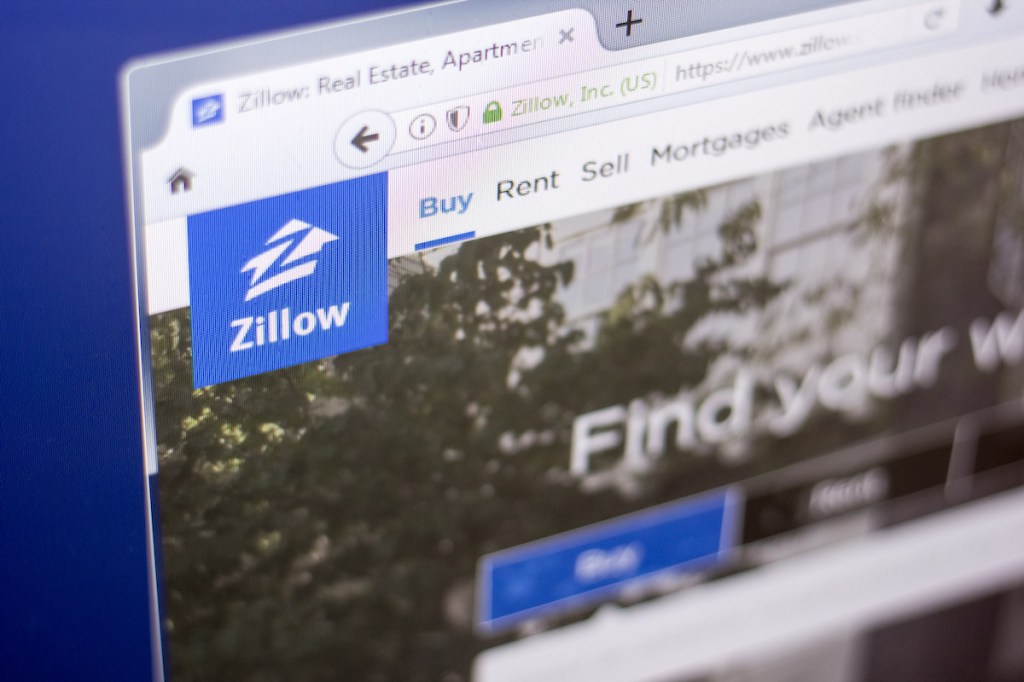Zillow CEO Rich Barton announced Tuesday that his company is exiting the iBuying business, a mind-boggling about face that completely changes Zillow’s business model and will result in the loss of about 1,605 jobs.
The wind-down of “Zillow Offers” is expected to last several quarters and will reduce the Seattle-based company’s workforce, reported at 6,420 employees as of June 30, by 25%. Barton did not specify beyond the percentage how many people might lose their jobs on a dramatic and at times surreal earnings call Tuesday afternoon.
Zillow reported a brutal net income loss of $328 million in the third quarter, mostly due to a $421 million net loss before taxes on Zillow Offers. The company reported $1.73 billion in total revenue with 68% of the total coming from Zillow Offers, through which the company sold 3,036 homes in the third quarter.
However, Zillow also purchased 9,680 homes for cash in Q3. The company had already announced Oct. 17 that it was pausing iBuying purchases for the rest of 2021, citing operational capacity constraints.
The prior announcement was stunning in its own right, and led to revelations that the company bought homes for well above market value, and re-listing homes for less than what they were bought for.
But it was nothing compared to Tuesday’s news, particularly since during the company’s prior earnings call, Barton discussed Zillow Offers in purely glowing terms. He said then that the program was “more than durable” and planned to accelerate its expansion.
Barton, who took over Zillow from Spencer Rascoff in early 2019, and spurred Zillow’s reinvention as an iBuyer, was evidently rattled during Tuesday’s call. He acknowledged that ending Zillow Offers and laying off a quarter of the company’s workforce affected his emotions.
His voice cracked, and he continually cleared his throat, while sucking on cough drops. During questions from Wall Street analysts, floored in their own right after the rosy Q2 earnings call, Barton sometimes deferred to Allen Parker, the chief financial officer.
Barton did acknowledge that the Seattle-based business has been, “Unable to accurately forecast home prices” with “Zillow Offers unit economics swinging approximately 1,200 basis points from Q2 to an expected -500 to -700 basis points in Q4 2021.”
“Because of this price forecasting volatility, we have had to reconsider what the business might look like at a larger size,” added Barton, who also co-founded Zillow in 2005.
In short, Barton lamented that iBuying was too risky a way to spearhead Zillow monetizing its 220 million average monthly unique users.
So what might be a better way? The CEO pointed to existing Zillow programs including Premier Agent (which, up until relatively recently, was the company’s cash cow), mortgage origination, and the recently acquired ShowingTime. Premier Agent generated $359 million in Q3 revenue and the mortgage division raked in $70 million of revenue, and both divisions turned a profit.
Zillow closed in October its $500 million purchase of ShowingTime, a company that helps real estate agents schedule home showings for their clients. The purchase has triggered a Federal Trade Commission inquiry regarding Zillow’s array of agent and consumer data.
Barton and Parker repeatedly mentioned ShowingTime, but did not specify how Zillow might monetize the home showing platform.
If the call was difficult for Barton, it was also tough for analysts used to congratulating the CEO on a job well done and asking often technical questions. One analyst after another politely asked Barton how he could “reconcile” closing Zillow Offers with prior quarter’s statements.
“The way you’re talking about Zillow Offers is a little different from the way you talked about it in the past,” said Ygal Arounian of Wedbush Securities.
Barton’s answers largely referred back to his opening statements, adding occasionally that ZIllow has a “lot more potential” as an “asset light” business.
The CEO’s answer did not address how Zillow will move off the homes it has either purchased or agreed to buy. There are 8,200 homes in contract alone that Zillow has agreed to buy, Bloomberg first reported Monday, and the firm expects to lose 5 to 7% on these homes.
By close of the market Tuesday, the company’s stock price had tumbled 12% during the day, trading at $87.20 a share with a market value of $22.7 billion.






